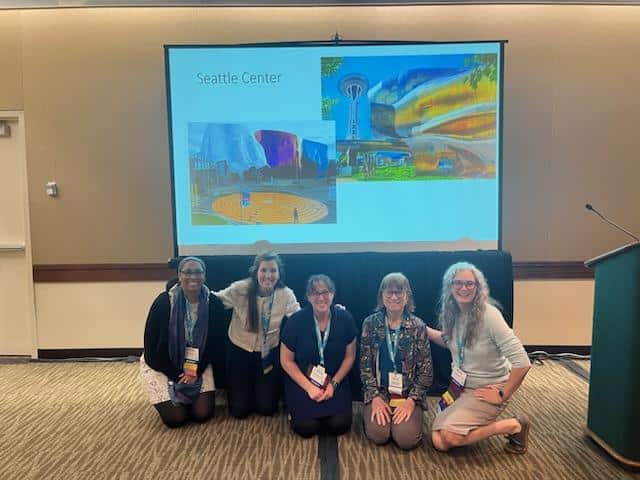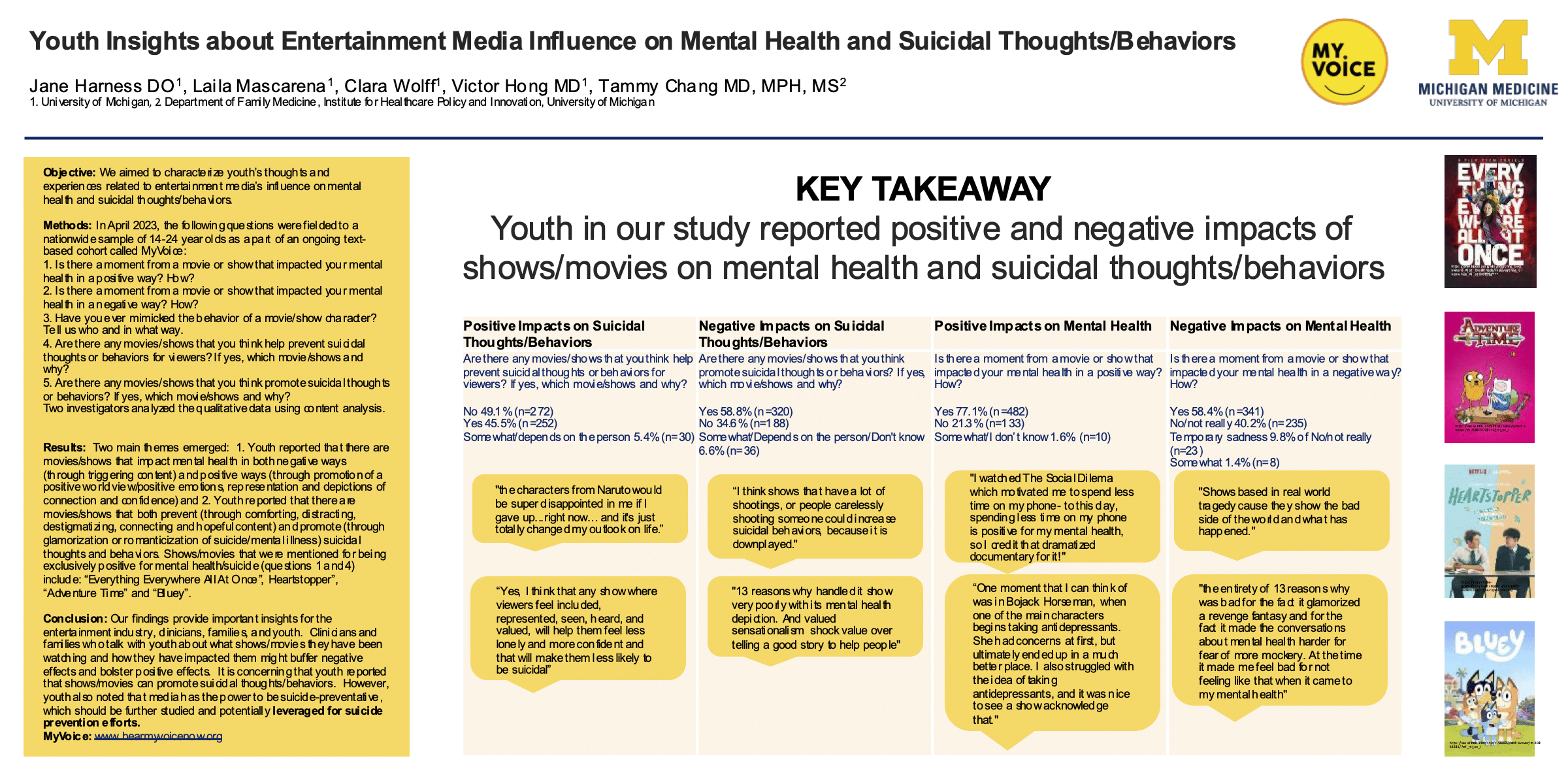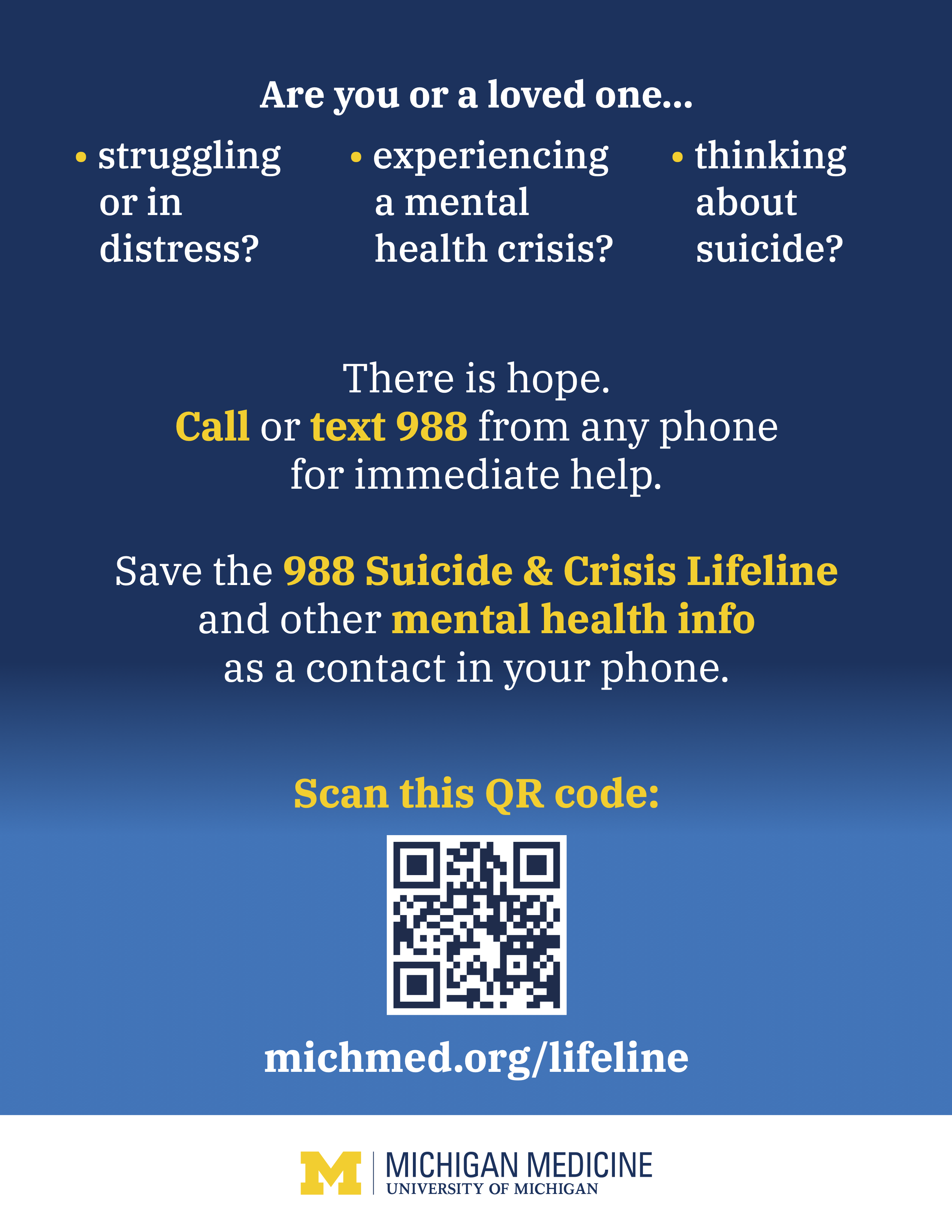
Pictured above are national experts on child and adolescent psychiatry including, from left to right, Ardis Martin, MD, Jane Harness, DO, Casey Berson, MD, Kelly Hill, MD, and Amy Meadows, MD, who took part in a discussion about entertainment media and its effects on youth’s mental health.
Members of MyVoice and the Department of Psychiatry at the University of Michigan presented findings from a study that examined entertainment media and its effects on young people’s mental health at the recent American Academy of Child and Adolescent Psychiatry’s Annual Meeting in Seattle.
Study results suggest that youth find entertainment media, like shows and movies, can have both negative and positive effects on mental health and suicidal thoughts. These findings can inform the entertainment industry, clinicians, families and youth on the ways entertainment media may impact how youth act and feel.
The new research titled, “Entertainment Media’s Influence on Suicidal Thoughts and Behaviors: Youth Perspectives” was presented via poster during the conference. The research team included first author and Clinical Assistant Professor Jane Harness, DO, of the Department of Psychiatry at the University of Michigan; Laila M. Mascarena, BA, a former U-M MICHR summer intern working with MyVoice; MyVoice member Clara A. Wolff; Clinical Associate Professor Victor Hong, MD, of the Department of Psychiatry at U-M; and MDisability Director Tammy Chang, MD, MPH, MS.
Read the research abstract here. See below for the research poster.
This work was presented in a session after attendees visited the Museum of Pop Culture (MoPop). The session was titled: “Popular to Who and Popular by Who? Exploring the Intersection of Mental Health and Culture at Seattle’s MoPop Museum Visit.”
Harness was joined in the discussion by other national youth and adolescent health experts, pictured above.
“Attendees found the MyVoice data to be compelling,” Harness said. “A common thread was the value of talking with patients about the movies and shows that they are watching.
“Discussions about invisibility vs. hypervisibility of people of various racial backgrounds in media were very important and mirrored our findings that inclusive and positive representation in entertainment media could prevent suicide among youth,” she added.

If you or someone you know is facing mental health struggles, emotional distress, alcohol or drug use concerns, or just need someone to talk to, please contact 988 to speak to a caring counselor.
You can also scan this QR code for the University of Michigan crisis helpline, which will be stored in your cell phone:

